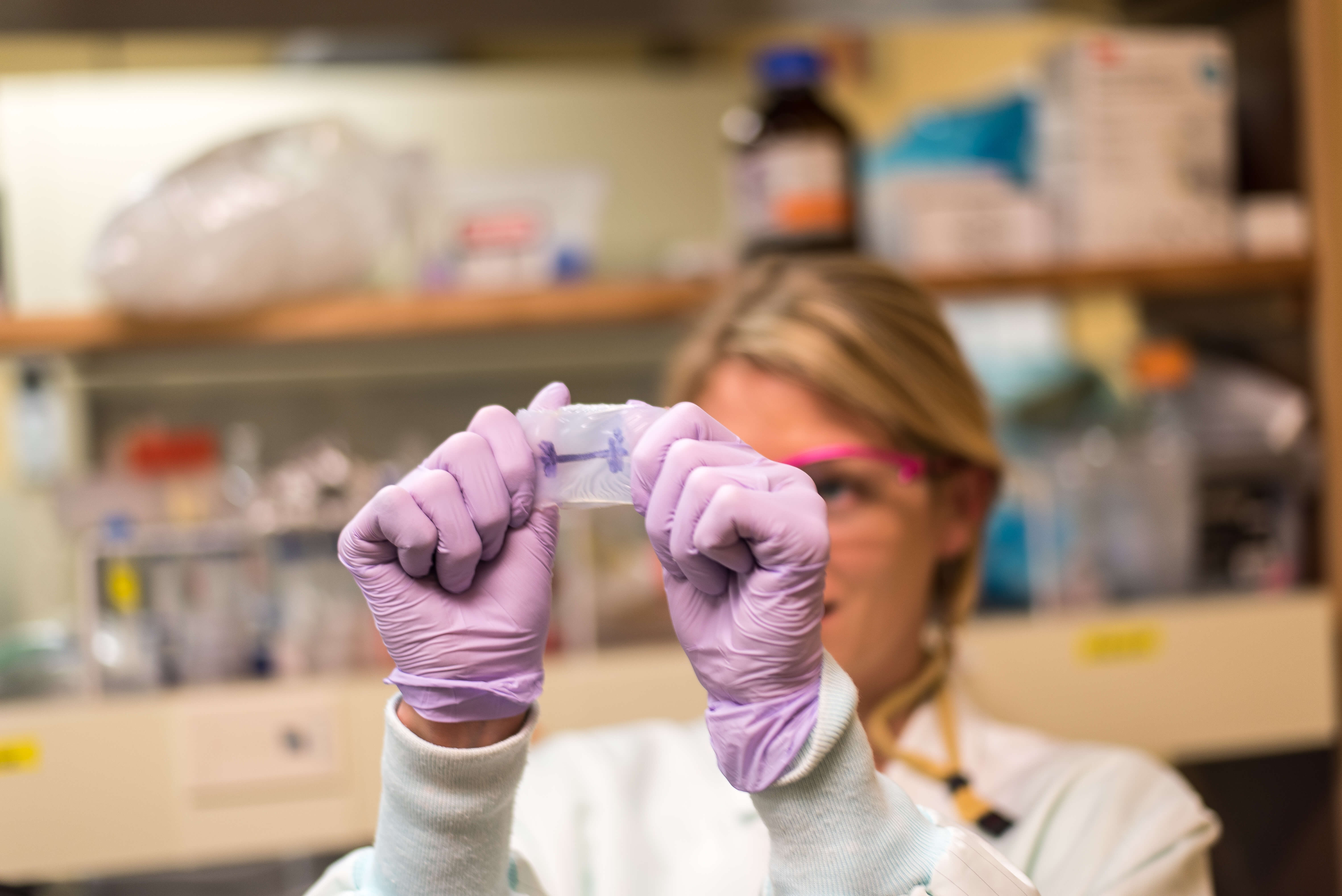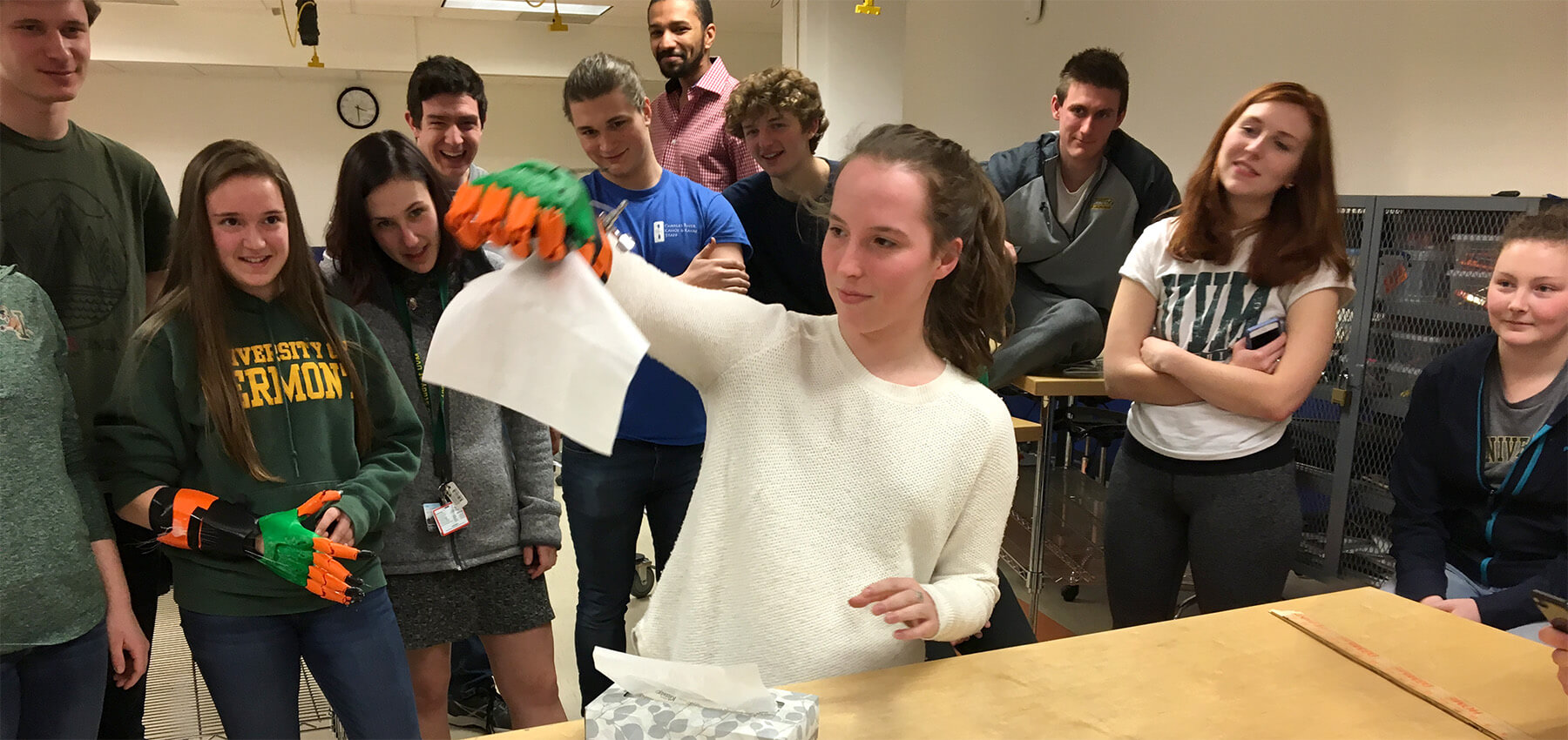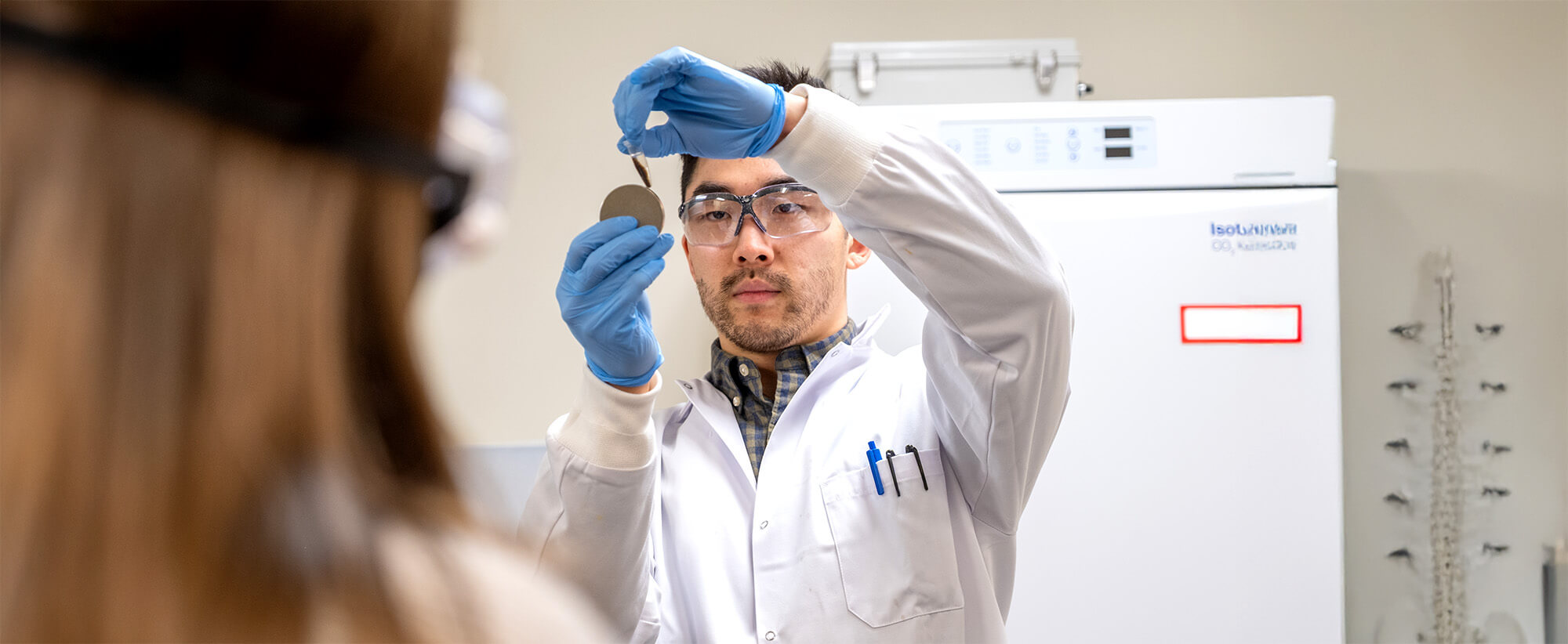Biomedical Engineering
Type of Degree
Ph.D.
School or College
College of Engineering and Mathematical Sciences
Larner College of Medicine
Area of Study
Science, technology, engineering and mathematics
Program Format
On-campus, Full-timeCredit hours to graduate
Students must take at least 75 credits in courses and dissertation research including 14 credits of Core Courses, at least 16 credits of Technical Electives, and a minimum of 20 credits of dissertation research.
The University of Vermont offers a Doctor of Philosophy (PhD) degree in its interdisciplinary Biomedical Engineering (BME) Program. This flexible, dynamic degree trains aspiring researchers to apply engineering techniques to the study of biological systems.
Loading...


